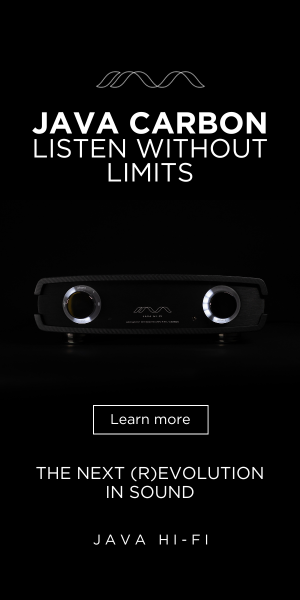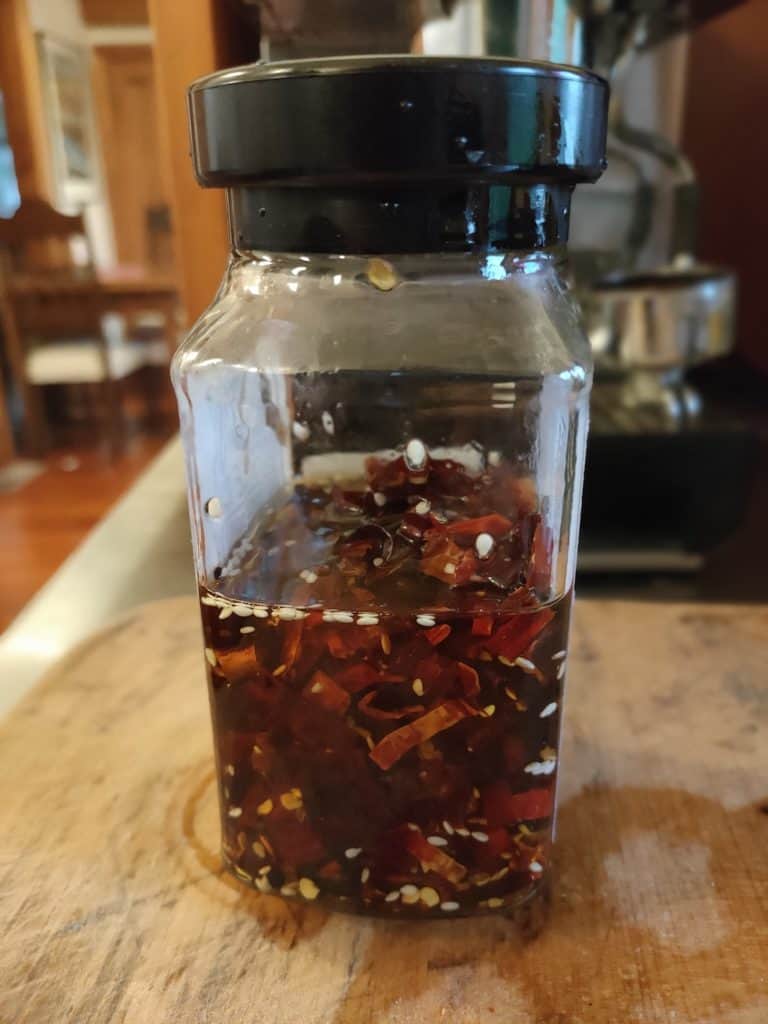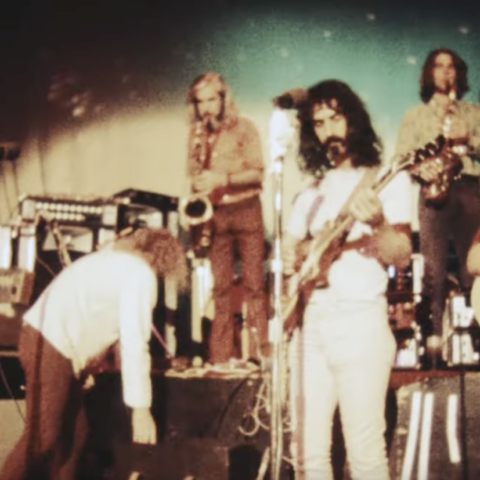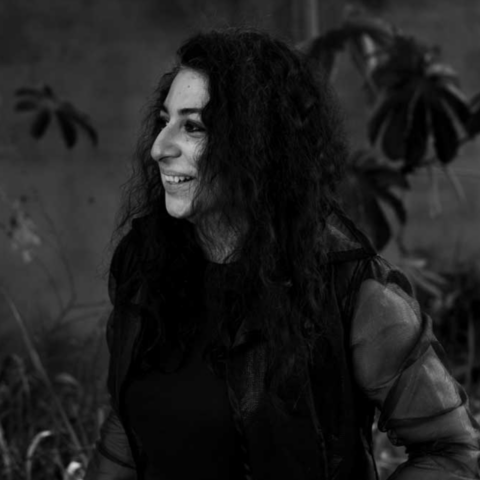The Dalai Lama has made his first album at the age of 85 with the help of a couple of enthusiastic New Zealanders. GARY STEEL put them through the great Witchdoctor Q&A.

When New Zealander Junelle Kunin approached the Dalai Lama in 2015 with the idea that he could record an album of his prayers and chants, she knew the odds were against his accepting the proposal. After all, he’d turned down every previous offer.
Much to her surprise, he was keen, and the project slowly evolved and eventually came to completion over the course of five years. Here’s Witchdoctor’s Q&A with Junelle and her partner Abraham – who provided the backing music – about this unlikely and rather surprising collaboration with the Tibetan spiritual leader.
Gary Steel – Junelle, do you have any insight into why the Dalai Lama accepted your proposal when he’s probably rebuffed many such proposals previously?
Junelle Kunin – His Holiness has said a number of times he trusts me. I was fortunate to have hosted him while he was here in New Zealand. I had the opportunity of spending a lot of time with him personally on his NZ Tour, with our days starting at 4am.
By the time I had asked him, I had hosted him on three NZ tours and visited him in Australia and India a number of times too. We built a friendship of warmth and care over the years. He feels more like family, to me, if I’m honest. Someone I care for and feel protective of like family. I’m very close to some of his closest ‘attendants’, they’re lovely monks who all know me well, and they’ve become a part of my extended family.
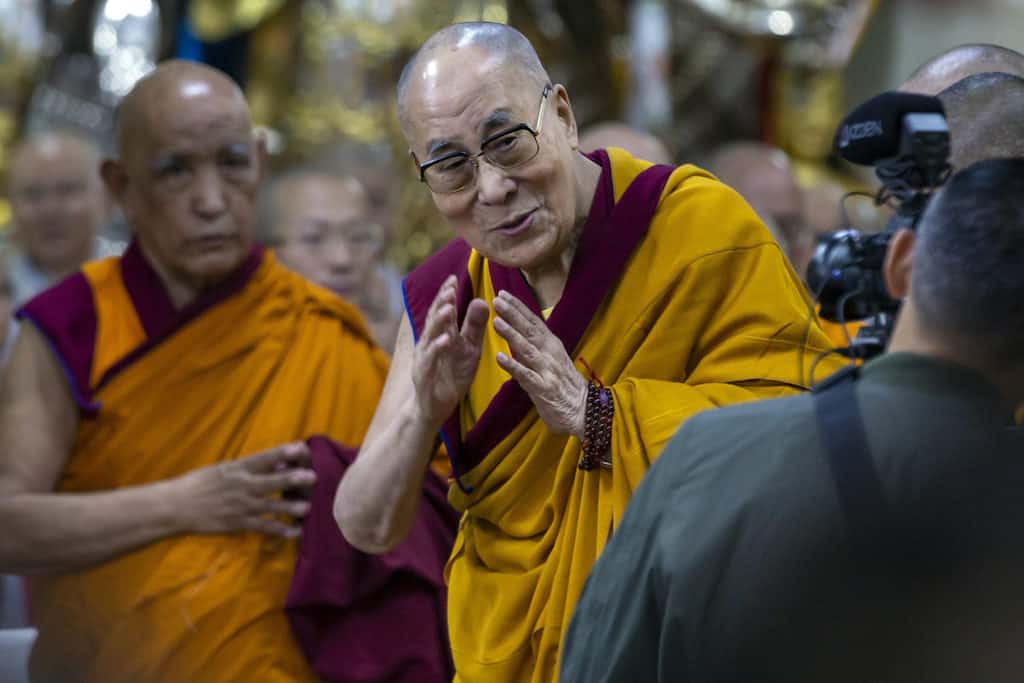
Gary – What was the actual process of getting the necessary permissions to finalise and go ahead with the project? Was it simply a handshake, or were there legal loopholes to jump through? And when you’d finished the music, what was his reaction and were any adjustments required? Is this why it took the best part of five years to come to fruition?
Junelle – It was one of those ‘moments’ on this journey we will always treasure when we heard the Dalai Lama’s ‘yes’ to us doing this work. To have his trust in what we were doing, from the very start. He always made himself available. He wanted us to have all we needed to do this project, including the photoshoot which we requested from New Zealand.
Abraham – When we met obstacles along the way, the Dalai Lama was a passionate advocate for us doing this work, repeatedly emphasising the benefit it would be for many people. He trusted Junelle and her integrity for this work.
Also remembering this work of combining music to his mantras’ was a ‘first’ and so getting the collaboration ‘right’, with him, his team and us took time. Every piece of work was a story in itself, to get it to where we wanted it to be. To get the feel of each song and the music right, was worth the time frame it took to complete it.
With this amount of commitment and support from The Dalai Lama, we navigated our way through the necessary legal processes with his gatekeepers. As you can imagine, the Dalai Lama has a close team looking after his interests. They have been really kind to work with, and we developed a good relationship with them as well.
The Dalai Lama’s reaction was humbling, and he always reiterated that he trusts Junelle. We both were surprised and humbled that no changes were requested to the music either.
Gary – Where were the Dalai Lama’s contributions sourced from? Did he record them specifically for the project or gift them from recordings he already had?
Junelle – He accepted my request via a letter I sent him through his attendants while visiting Dharamsala, where he lives in the foothills of the Himalayas. It was upon receiving that letter he enthusiastically agreed and told his staff to book me in to conduct the recording session. Two days later I sat with him at his residence and recorded him. That was the first of three recording sessions for the Inner World album.
I had made a list of mantras that were specific to this work. My list of mantras were ones I thought would be the most beneficial, to generate compassion for oneself and others. To help with illness, generate courage, and find protection in times of fear. He gave a beautiful talk for children, and offered a beautiful homage to mothers too, which is the track we invited Anoushka Shankar to feature on.
A year or so later we met again in Brussels and he added a talk for humanity, about the dangers of ‘them and us’ mentality which divides us. And the importance of seeing the oneness of humanity. It’s very interesting how poignant those messages are in this hour especially.
After I had all my recordings, one of my teachers asked to try and get him to do a mantra for wisdom, to help young people with their studies. I felt shy to ask as I had already made so many ridiculous requests, but I sent his assistant a message on Whatsapp. A few weeks later while we were in New York mixing the album at The Bunker Studio (run by Kiwi Aaron Nevezie), I woke up to a Whatsapp message from his assistant with the mantra recorded while they were on tour in Poland. That was quite an amazing shock!
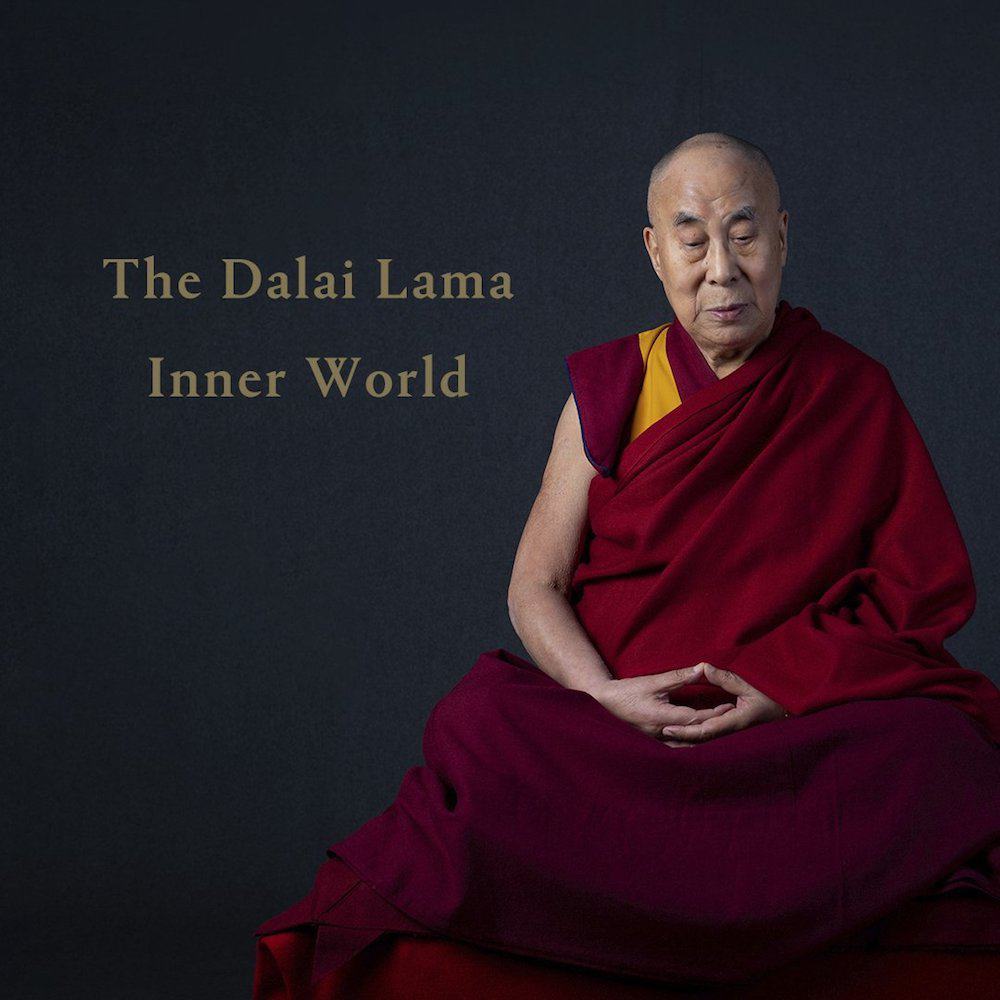
Gary – Abraham, are you, like Junelle, a practising Buddhist?
Abraham – I meditate, but I’m not a Buddhist. This project allowed an opportunity to nurture my understanding of, and my ever-deepening respect for, Buddhist principles and philosophy. The wisdom held in those teachings feels all the more pertinent in our current times.
Gary – How did you approach the project from a musical point of view? Did you feel sure-footed in what the various musical contributions were going to be? Are the programmed backgrounds described as ‘New Age’? How do you feel about that description, and is it accurate? (Bear in mind that I’ve only heard one song).
Abraham – The mandate to create the music for this album was incredibly daunting. Amazing, but daunting. The responsibility and trust we’d been given was huge, and there was no template. After some early experimentation and soul searching, a kaupapa for the project started to emerge. In as much as it could be, this work needed to be for everyone.
Holding that sentiment really helped to steer the ship when creating the music, or knowing if we had got it right. Balancing this consideration of a wide audience, we had to remain acutely aware of the many numerological and hierarchical Buddhist aspects there were to consider. Fortunately, we could (and frequently did) go to Geshe Thupten Wangchen, a scholar of Tibetan Buddhism (based in Avondale) for advice.
Finding the sound of each track was ultimately an intuitive process. Just trying to be open and receptive, searching for a feeling to align with each mantra or each discourse. Sometimes this feeling clicked quickly, and it was just a matter of building on or distilling it. Sometimes it would be the 5th or 6th completed version of a song where it finally carried the right emotional resonance. Where the feeling went deep enough.
The music is intrinsically a part of the journey we’ve been on bringing this into the world, and some of it needed to be revisited one more time to honour that. To make it the best it could be from where we are now as people and artists. As a result, some of this music is three or four years old, and some of it, less than a month or so old.
I’m not too worried about how people describe it. I think if you’re looking for broad genres, that’s a fine one. I was just trying to make something calming, heartfelt, and in support of His Holiness’ wishes for this work.
Gary – I guess the timing of its release in this time of great international stress is perfect. Is it something that anyone could put on and expect to have a calmative impact, or do you have to have knowledge of Buddhism and/or the specific mantras? Did you test the album’s effectiveness on real people?
Junelle – These mantras were chosen because of their practical benefits in everyday life, for everyone. This work is not for Buddhists, it is to help and support people of all walks of life. It is genuinely about benefiting all who listen to it, as much as possible.
The Dalai Lama even says in one of the tracks titled ‘Humanity’: ‘Our ultimate goal should be: bring peace to the world, compassion in the world, irrespective of whether believer or non-believer, religious-minded or not’.
In the track for ‘Children’ he tells them about being the future, and the responsibility they have for a more peaceful world.
Abraham – As alluded to, the whole purpose of this album is to make these blessings, these teachings as widely available as possible. Maybe most importantly for those who don’t have any mind-training or meditation practice, to create a place of peace and refuge for the listener regardless of background.
Yeah, there was quite a lot of road testing. Both on willing participants, and those just living with us while the music-making was happening. Tested on humans and animals actually!
To quote Ven. Robina Courtin: ‘Not only is reciting mantras powerful but merely hearing these holy sounds or seeing these holy syllables can bless and heal living beings and the environment.’
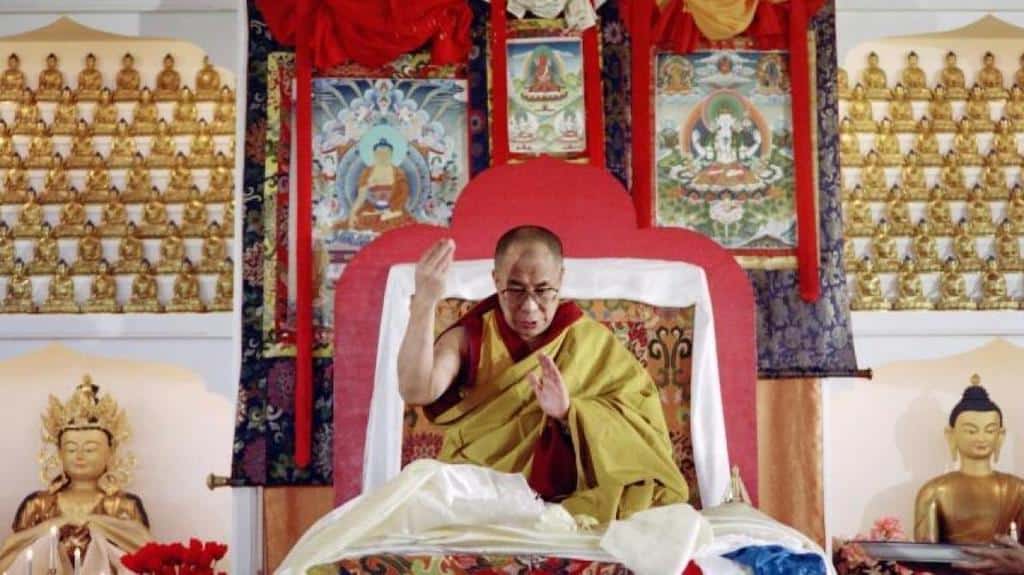
Gary – Abraham, you’ve already got an incredible musical CV (he’s worked with Teeks, Avantdale Bowling Club and many others). Would you call yourself a musical polymath? If you had to only work in one style of music, what would it be? Or would that be impossible? Aside from this project, what’s the most enjoyable thing you’ve worked on?
Abraham – That’s kind of you to say. I would call myself a musician. Due in part to our population, I think most musicians over here have a few strings to their bows. I don’t really know what to say with regard to style preferences. There are some which I love especially, but overall I gravitate to feeling over genre. Anything that speaks to what Bill Evans calls ‘the universal mind’. If the music, or medium to be coupled with music, makes me feel something, and if it’s something I can add positively to, then I want to be a part of it. Just like how certain ragas are meant to be played in the morning and others at night, there is different music right for different moments in our life.
It’s the same in terms of projects, often it’s more about moments of gratitude on stage or in the studio. The way you feel being a part of something bigger than yourself. A special one recently was the Avantdale Bowling Club track ‘F(r)iends’. That one goes straight to the heart every time I hear it. It was an honour to work with Teeks on his upcoming album too. He’s a rare type of person. Not just his talent, his whole energy is so grounding to be around.
Gary – Junelle, I hadn’t been aware that you’re an accomplished singer-songwriter as well. (Junelle has her own solo album). Did you play a musical role in this project, too?
Junelle – Accomplished is probably a stretch, but thank you! Yes, I did play a musical role. I was a constant sounding board with the music throughout the entire process. I would often be running away from my desk at work to listen to parts Abe had done and write notes and send them back, and come home to the same back and forth. There was a lot of pressure on my shoulders, given the trust I had been given so stayed very close, especially coming from a Buddhist and reverential lens, so trying to keep the music on track in that sense.
It was Abe’s genius overall though. I definitely can’t do what he does. My role was very much executive producer. Give annoying feedback and come back to check it later. I wouldn’t know how to actually make those changes, or play those parts.
I did however officially co-produce ‘Courage’ and ‘Purification’ too. Which gave me insight into actually how difficult it had been for Abe to wrap music around spoken word, with no melody or clear rhythm.
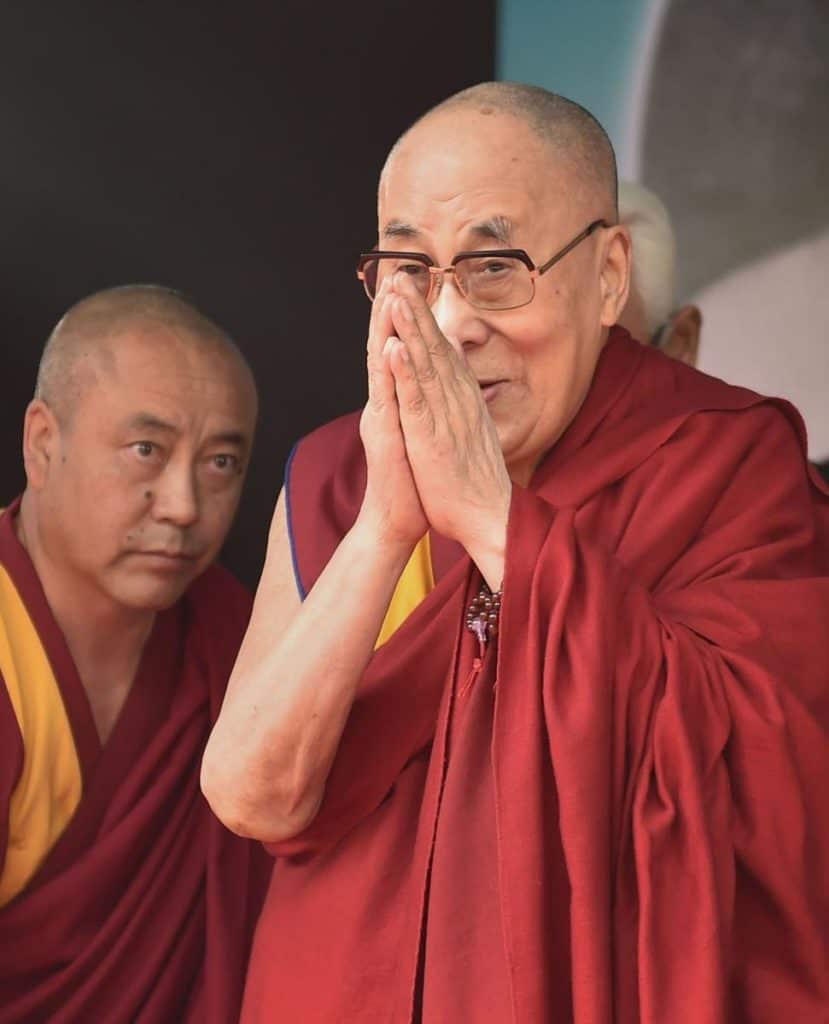
For ‘Courage’ I wanted it to have a really feminine element, including a bed of female vocals. To merge the masculine and feminine between the Dalai Lama, and the female deity Tara which the mantra in ‘Courage’ is calling on. There is a very beautiful connection between the Dalai Lama and Tara, and Tara is very important to me and my practice, so I had strong views and feelings on that track.
I sang backing vocals on ‘Courage’, ‘Ama La’, and ‘Purification’. I also wrote the piano for ‘Purification’, with my hospitalised mother in mind, worried we were going to lose her. The mantra in ‘Purification’ is one the Dalai Lama offered to help with the time of death. And I wrote the piano thinking what I would want my Mum to hear on her deathbed. We also added backing vocals to create a sense of company, to help alleviate the feeling of loneliness at such a time.
For so many, we are at a loss with how to cope with death, especially for those who do not have a religious faith. So having something to support in that time feels really important.
Gary – Is there any potential for a sequel?
Abraham – I don’t know. There is more material. Anything’s possible.
Junelle – And perhaps the Dalai Lama may wish to offer more. He said he will live for at least another 20 plus years, so there is hope.
For us personally, we want to take time to celebrate and reflect on this work, which has taken us both on an amazing journey over five years. Our hearts have been committed to making sure we stayed true to the kaupapa and to see it released into the world and having it help people in various situations of need.



